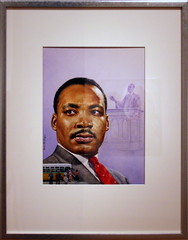"I know the thoughts that I think toward you, says the LORD,
thoughts of peace and not of evil, to give you a future and a hope"
(Jeremiah 29:12-NKJV).
This is assurance for the believer for any time, day, or year. It is one of Jeremiah's prophetic utterances. These are words for every Christian, for we are children of God, whether Gentile or Jew, down through every generation since Christ walked physically among people and an empire's powerful government. In Jeremiah's day, the people of God had gone astray, ignoring God for other gods. Yet, God's promise was that His thoughts toward His people are always for their good, their peace, their future, and their eternal hope. That's why, generations later, a follower of Christ, wrote this to the Christians living in Rome:
"And hope does not disappoint us, because God has poured out his love into our hearts by the Holy Spirit, whom he has given us"
(Romans 5:5-NIV-italics added).
God knows the future, and in time Christ came and later sent the Holy Spirit to dwell in us, to guide, teach, help, and comfort. In Jeremiah's day, the people were in exile in Babylon. The prophet wrote: The "LORD of hosts, the God of Israel" told "all who were carried away captive...from Jerusalem to Babylon," to settle there, build themselves houses, work their gardens for their food; to marry, have children and grandchildren so "that you may be increased there, and not diminished" (see Jeremiah 29: 12ff).
"...And seek the peace of the city where I have caused you to be carried away captive, and pray to the LORD for it; for in its peace you will have peace." All of that was not the hope, but part of its revealing.
And it happens as God says.
During seventy years in exile, the people did "the final editing of the Pentateuch, of the deuteronomistic work of history (the Books of Samuel and Kings), of many of the prophetic books and also in the composition of new literature (such as the Chronistic works of history, i.e., Ezra, Nehemiah, and Chronicles) that reflects the concerns of the returnees from Babylone [sic]...."
As writers, doesn't this cause us to pause, to reflect? We are pilgrims on the earth. Our Home is in heaven, with God. That plan is our hope, as Christ is the Person of our hope. Yet, wherever we are, He tells us to go into everyday life with hope. We are to settle, arrange our homes, have families. In the midst of the most difficult circumstances, even a form of slavery, the "lowest of the low," God's people accomplish special works if they remain faithful to God and rely upon Him. In every circumstance, we today, as children of God in Christ, have hope in the Lord.
This reality is for us in this New Year 2011, every day.
Whatever our plans, for example, for writing, editing, or publishing this year (and we do have, make, and put plans into action, surely!), whatever our hopes for the future--spiritually, personally and professionally--, we have an eternal, many-faceted hope. God puts desires and ideas in us and works them out for our enjoyment, joy, and good, for our future alone and in the community of believers in fellowship.
What a way of faith in which to face this new year in Christ!
Bible abbreviation notes:
KJV - King James Version of the Bible
NKJV - New King James Version of the Bible
NIV - New International Version of the Bible
Bible quote source from Jeremiah is the NKJV.
 Image via Wikipedia
Image via Wikipedia



















![By Karen Kingsbury: Take Three (Above the Line Series) [Audiobook]](http://ws.amazon.com/widgets/q?MarketPlace=US&ServiceVersion=20070822&ID=AsinImage&WS=1&Format=_SL160_&ASIN=B004C36622&tag=o04a5-20)



